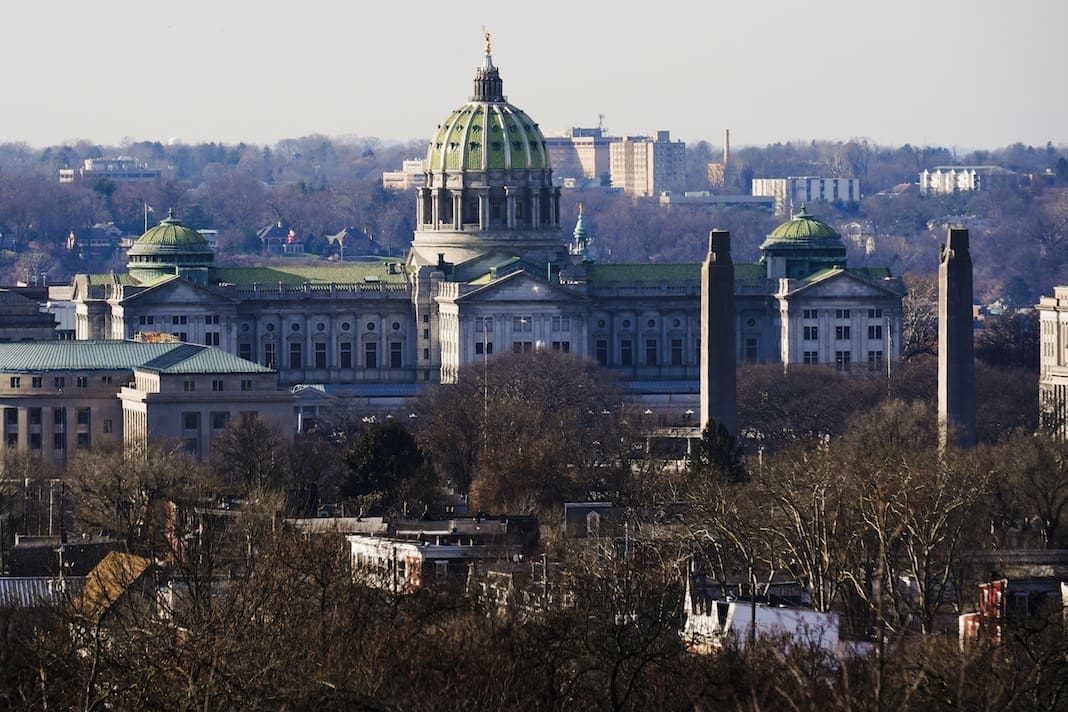Biden infrastructure law sends Pennsylvania grant to replace hundreds of old rail cars
Pennsylvania’s SEPTA system is currently using some rolling stock that is nearly 25 years old.

The U.S. Department of Transportation announced on Feb. 22 that Pennsylvania would be sent a grant to purchase new rail cars to replace aging rolling stock currently in use by the Southeastern Pennsylvania Transportation Authority, or SEPTA.
SEPTA, according to its own data, had more than 644,000 users across its entire system, which includes buses and trolleys as well as trains. It will receive about $317 million, which will be used to purchase as many as 200 rail cars for use on the Market-Frankford Line, which is the busiest route in the entire system.
Funds for the grant come from the Infrastructure Investment and Jobs Act that was signed into law by President Joe Biden in 2021.
Grants were also awarded to transportation systems in Baltimore, Maryland, and Chicago, Illinois.
“Through President Biden’s infrastructure law, we’re proud to deliver 300 new railcars to give Americans a safer, more comfortable, more reliable service on America’s rails,” Transportation Secretary Pete Buttigieg said in a statement.
The grant comes after Democratic members of Pennsylvania’s congressional delegation sent a letter to Buttigieg in January requesting additional funds for the SEPTA system. The letter was signed by Sens. Bob Casey and John Fetterman, along with Reps. Dwight Evans, Mary Gay Scanlon, Madeleine Dean and Chrissy Houlahan.
In the letter, the members noted that SEPTA is essential to southeastern Pennsylvania and that transit in the Philadelphia region could undergo a “death spiral” if it was affected by budget cuts.
The members of Congress, along with Rep. Brendan Boyle, released a joint statement praising the department’s announcement.
“Thousands of Pennsylvanians depend on the Market-Frankford Line every day to get where they need to go—to work, to school, to spend time with family. With this vital funding, SEPTA can modernize its inventory with American-made rail cars while increasing safety and reliability for all of Southeastern Pennsylvania,” Casey said.
The infrastructure law received bipartisan support when it was being voted on in Congress, but all but one of the Republican members of Pennsylvania’s congressional delegation, Rep. Brian Fitzpatrick, voted against it.
“Only 10% of Democrats’ trillion dollar ‘infrastructure’ bill actually goes towards infrastructure. The rest of the bill is full of Green New Deal policies that prioritize coastal elites in big cities while leaving middle America behind,” Rep. Guy Reschenthaler said in an August 2021 Facebook post.
All of the Democrats in Pennsylvania’s congressional delegation voted for the bill.
According to a February 2023 fact sheet released by the White House, Pennsylvania has received more than $8.1 billion from the infrastructure law for over 168 projects. Those projects include improvements in roads, bridges, public transportation and airports, along with expansion of broadband access and delivery of clean water.
Prior to the passage of the law, Pennsylvania’s infrastructure had been rated a “C-“ in a 2022 report by the American Society of Civil Engineers. The report noted that the state had some of the oldest infrastructure in the United States and that a maintenance backlog has built up over time.




